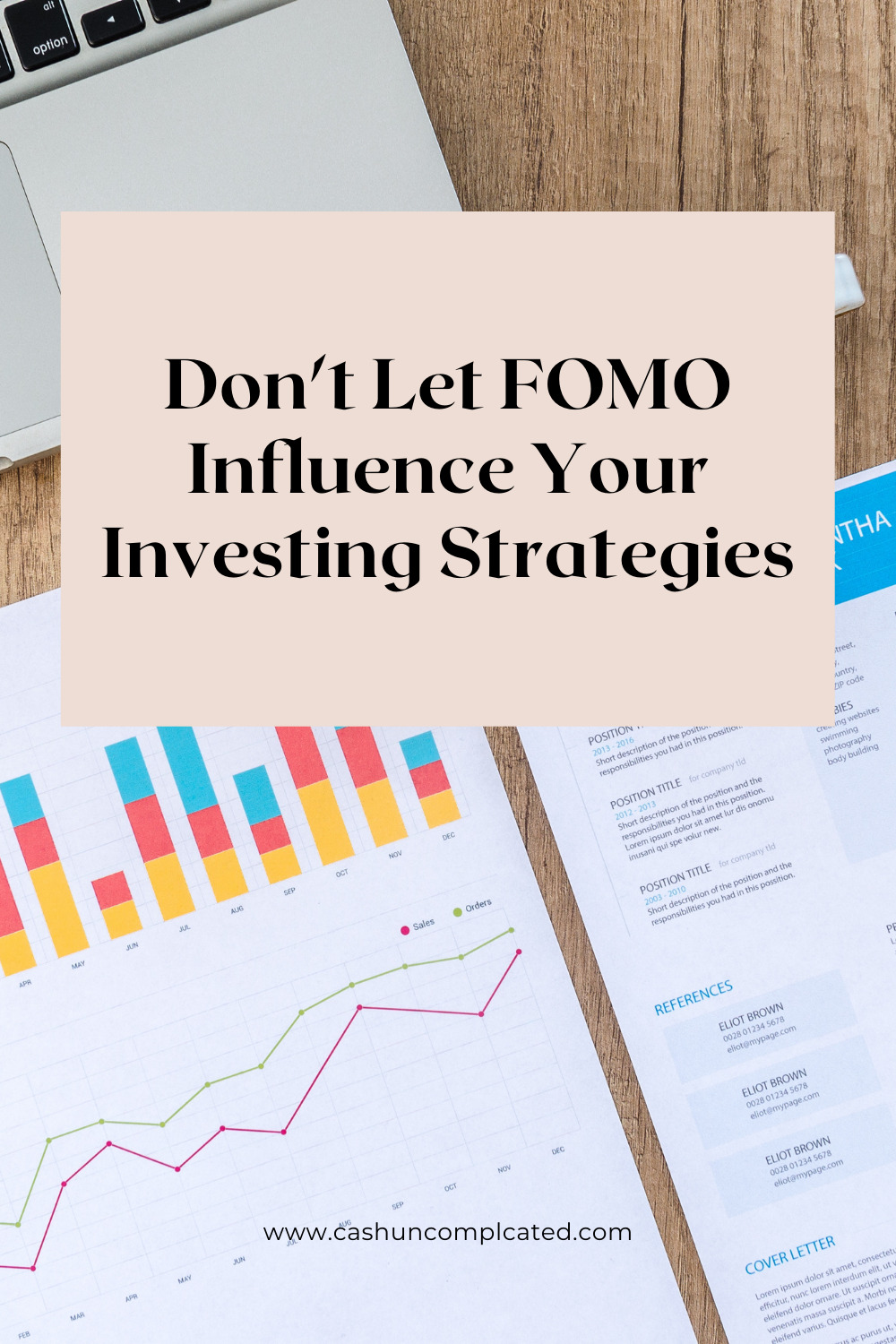In personal finance, you have to see the big picture. It’s really easy to forget to do this because we get busy, life changes, and the years go by in the blink of an eye.
The Norm
Most people kind of cruise through life. We do the same thing today because we did it yesterday, the day before, and the day before that. The weeks, months, and years go by and we wonder where the time has gone.
This is especially true in personal finance. We pick up money habits here and there, and before long we’ve been doing them for years. Whether they benefit us or not.
Why I Wrote This Post
I wrote this post so we can see the big picture. It’s a reminder to take a step back with your personal finances and really examine what you are doing.
Are the same money habits you had as a 25-year old still benefiting you now that you’re in your forties or fifties? Are you still doing the same things that worked thirty years ago, but won’t necessarily work today?
Even more importantly, are you constantly moving the goalposts or not recognizing when you have “enough?”
See the Big Picture
It’s easy to lose sight of the big picture when we’re in the “middle of it.” It’s important to take a step back and remember to see the big picture as it relates to money and our life goals. These questions will help you do just that.
Number 1: Doing the Same Things Just Because
What money habits do you have and why do you continue to keep doing them? Is it because they are actually working, or because you’ve always done them?
Doing the same thing “just because” is a trap you want to get out of. If it’s working–great, keep doing it. But if it’s not working, don’t do it just because it’s what you’ve always done.
I’ve talked with countless amounts of people who once they take a step back and see the big picture, realize that many of their habits aren’t serving them anymore. For example, a really common one is packing a lunch. Somehow the habit was formed years ago to buy lunch out.
As the years go by, that habit is costing a lot of money and time. In general, it’s also not as healthy. Many people realize they don’t even enjoy eating lunch out anymore and would actually prefer to bring their own lunch. This small tweak saves a lot of money and provides many other benefits.
Related: Can Packing Your Lunch Make You a Millionaire?
Number 2: Letting the Tax Tail Wag the Dog
Taxes are a big deal. They eat up a large percentage of everyday income and the majority of people don’t realize it because they’re used to that amount coming out of their paycheck.
Then there’s a segment of the population that are “tax optimizers”, trying to save every cent of taxes that they can. I believe there is a happy medium here, because you can’t allow the tax tail to wag the dog.
What I mean by that is you also have to live your life and make smart decisions that move you towards your financial and life goals. Trying to optimize every last bit of your taxes can go against that.
For example, someone losing thousands of dollars every year on a rental property “for the tax benefit” isn’t using their money to the highest and best use. It won’t move them towards their goals either.
Number 3: Buying Things on Sale You Don’t Need
Buying something on sale just because it’s on sale isn’t really saving money. It’s actually spending more than you would have in the first place.
For example, imagine someone has four pairs of shoes they wear and don’t have any need or desire for more. If there is a pair of shoes on sale for 15 percent off that they buy, they are just purchasing something they don’t need. They had no intention of buying more shoes, but got caught up in the impulse of a sale.
I’m a big proponent of buying things on sale when you need it. But if you have no need and had no previous intention to purchase the item, there’s no need to partake in the sale.
Number 4: Risking What You Can’t Afford to Lose
I’ve been fortunate to have had the opportunity to meet a lot of wealthy and successful people. A great piece of advice many of them have given me is to not risk what you can’t afford to lose.
For example, someone who is 60 years old with a few million invested would be unwise to pull all their money and put it into a high risk/high reward investment. The reward is great riches, but the downfall is losing a majority of their money nearing retirement age.
Same would go for parents responsible for raising young kids. Someone in this spot would never want to “risk it all” with others to support.
Whereas a 25 year-old with no family to support would be more willing to go all in on a risky investment. They have time to make up the money and it wouldn’t keep food off the table for their kids or a spouse.
Number 5: Missing Your Progress
In the book The Gap and the Gain, Dan Sullivan and Benjamin Hardy write about measuring your progress in the gain, rather than in the gap. What they mean by that is to measure yourself against where you once were, not necessarily where you want to be.
For example, someone who set a goal when they were broke to have five million in assets within 15 years. If eight years have passed and this person has amassed just over one million, they might feel like a failure. Eight years have passed and they still are four million short of the goal.
However, the reality is this person went from absolutely broke to having a net worth of over one million dollars in an eight year span. That is really great progress and cause for celebration! The measurement needs to be in the gain, rather than what’s still left to achieve, which is the gap.
Number 6: Disregarding “Enough”
If you were told years ago that you’d have a great family, job that you enjoy, and financial independence, what would you say? Would you take that deal?
I think most people would take that deal, yet when they get to that point, they want more. And when they get more, they want more after that. It’s a game that never ends because “more” is never-ending.
That’s why it’s important to take a step back and understand when “enough” has been reached. That doesn’t mean you give up on life or stop making goals, but you have an understanding that “enough” has been reached and you can prioritize what is most important to you.
Number 7: Moving the Goalposts
This directly relates to the last concept of “more” written about in the last section. We’re all guilty of moving the goalposts. Here’s how it works for most.
You’ve wildly exceeded your expectations but now you need something else. Maybe instead of 10 rental properties, you now want 20. Or maybe that coveted job isn’t good enough anymore, you need the CEO role.
It’s good to have goals and set high standards for yourself. What’s not so great is constantly moving the goalposts and being dissatisfied with your current progress (which has been wildly successful). Going from goal to goal without any pause or celebration is greatly unsatisfying and has the potential to cause burnout.
Number 8: Knowing When You’ve Won
So many people have already won with their money, and don’t even realize it. As a result, they stay in jobs they don’t like in cities they don’t necessarily want to live in.
Here’s an example: A 55 year old woman who currently needs about $75,000 per year for her and her husband. She has over two and a half million in assets, not including her primary residence. Plus she has no consumer debt to speak of.
Her monthly cashflow exceeds her living expenses, making her financially free. She’s not rich, but has enough to live comfortably without having to work if she doesn’t want to. She could even choose to work part time and allow her investments to grow larger.
She also doesn’t have to engage in risky investments or take a big career risk at this point. She’s winning the money game and should make sure she acts accordingly.
Conclusion
When we’re engaged in life (like we should be), we don’t always see the big picture. Humans have a tendency to see the micro viewpoint and aren’t easily able to zoom out to the big picture.
The problem with this is that we sometimes miss the obvious. Like that we’ve already won with money, or don’t need to take any big financial risks Or that we can work part time and let our investments grow even bigger for the next couple years.
Take a step back and really assess your money situation. Are you in a better spot than you thought you were, or do you need to pick things up a little bit? Then make the life choices that work for your given situation.
What does your personal finance big picture look like?











